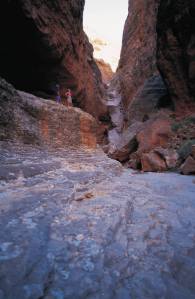Jethro was glad because of all the good things the Lord had done for Israel in saving them from the hand of the Egyptians. So Jethro said, “Honor and thanks be to the Lord, Who saved you from the hand of the Egyptians and from the hand of Pharaoh, and Who made you free from the power of Egypt. Now I know that the Lord is greater than all the gods. It was proven when they acted in their pride against the people.” Then Moses’ father-in-law, Jethro, gave a burnt gift in worship to God. And Aaron came with all the leaders of Israel to eat bread with Moses’ father-in-law before God. Ex 18: 7-12 New Life Version (NLV)
Sometimes as I sit in church during the sermon, my mind wanders. Gasp! I know - I'm the
 pastor's wife and should probably hang on every word, but alas, it's true. My mind wanders. But inevitably, when my husband begins to tell a story that's related to his topic, my ears perk up and my mind reins in those wandering thoughts.
pastor's wife and should probably hang on every word, but alas, it's true. My mind wanders. But inevitably, when my husband begins to tell a story that's related to his topic, my ears perk up and my mind reins in those wandering thoughts.
Why? Because stories are powerful. Stories have an interactive capacity to weave us into their web so that we imagine what the character is feeling and we experience the action in our minds like a virtual computer game.
Not only do they captivate us, stories unite, connect and heal us - both through the listening and the telling.
Remember Moses? He had married into Jethro's family after fleeing from Egypt 40 years before the time of today's Bible passage. So Jethro probably knew Moses' history. No doubt Moses had shared stories of the sacrifice of Jochebed, his mother, with his new wife's family. He probably told stories of things that happened in Pharaoh's court - maybe even recounting the trauma that caused him to stutter. When he killed the Egyptian task master and fled, he came to Jethro and eventually became part of that family. For the second forty years of his life, Moses was healing slowly through sharing his stories with trusted friends and family until he was ready to go back to lead his people out of Egypt.
Here in Exodus, when Jethro meets his son-in-law this time, Moses begins to tell the new stories - the stories of the suffering of his people, the victories of God, the struggles in the wilderness and the miracles of God's provision.
During the healing journey, telling the story of our lives and experiences, especially the traumatic ones, is vital to the process. It helps us to recover our voice - to have words to tell about what we've experienced. Story telling helps us integrate our painful experiences into our lives and lessens the pain the more we share it. Telling our stories helps us to affirm the reality of what happened to us.
It also offers a chance for others to give us feedback, revealing things to us that we may not even see yet!
Remember, when Moses encountered the burning bush in the wilderness? He had doubts about his own ability to become the deliverer and leader of his people. He was afraid and balked, telling God he couldn't do it because he stuttered.
But as Jethro listens to these new tales, he hears what Moses may not yet realize - there is no more stuttering. His voice is now confident and strong. Jethro listened with interest and empathy; then he was able to affirm to Moses that God had indeed done a healing work, not only for the Israelites, but for Moses too: " [God] made you free from the power of Egypt."
Listening to life stories blesses the hearer as well as the story teller. As Jethro listened to Moses' story, his faith increased. "Now I know that the Lord is greater than all the gods." And he worshipped God. If there was any doubt before in Jethro's heart about the person of Almighty God, the I AM, there wasn't any now. pastor's wife and should probably hang on every word, but alas, it's true. My mind wanders. But inevitably, when my husband begins to tell a story that's related to his topic, my ears perk up and my mind reins in those wandering thoughts.
pastor's wife and should probably hang on every word, but alas, it's true. My mind wanders. But inevitably, when my husband begins to tell a story that's related to his topic, my ears perk up and my mind reins in those wandering thoughts.Why? Because stories are powerful. Stories have an interactive capacity to weave us into their web so that we imagine what the character is feeling and we experience the action in our minds like a virtual computer game.
Not only do they captivate us, stories unite, connect and heal us - both through the listening and the telling.
Remember Moses? He had married into Jethro's family after fleeing from Egypt 40 years before the time of today's Bible passage. So Jethro probably knew Moses' history. No doubt Moses had shared stories of the sacrifice of Jochebed, his mother, with his new wife's family. He probably told stories of things that happened in Pharaoh's court - maybe even recounting the trauma that caused him to stutter. When he killed the Egyptian task master and fled, he came to Jethro and eventually became part of that family. For the second forty years of his life, Moses was healing slowly through sharing his stories with trusted friends and family until he was ready to go back to lead his people out of Egypt.
Here in Exodus, when Jethro meets his son-in-law this time, Moses begins to tell the new stories - the stories of the suffering of his people, the victories of God, the struggles in the wilderness and the miracles of God's provision.
During the healing journey, telling the story of our lives and experiences, especially the traumatic ones, is vital to the process. It helps us to recover our voice - to have words to tell about what we've experienced. Story telling helps us integrate our painful experiences into our lives and lessens the pain the more we share it. Telling our stories helps us to affirm the reality of what happened to us.
It also offers a chance for others to give us feedback, revealing things to us that we may not even see yet!
Remember, when Moses encountered the burning bush in the wilderness? He had doubts about his own ability to become the deliverer and leader of his people. He was afraid and balked, telling God he couldn't do it because he stuttered.
But as Jethro listens to these new tales, he hears what Moses may not yet realize - there is no more stuttering. His voice is now confident and strong. Jethro listened with interest and empathy; then he was able to affirm to Moses that God had indeed done a healing work, not only for the Israelites, but for Moses too: " [God] made you free from the power of Egypt."
What are you going through on your healing journey? And what is God doing in you?
Share that in some way, either through writing or verbally with someone you trust. We never know how our stories will affect the lives of others, but one thing is for certain - God will always use our stories to heal our hearts and to encourage others!






